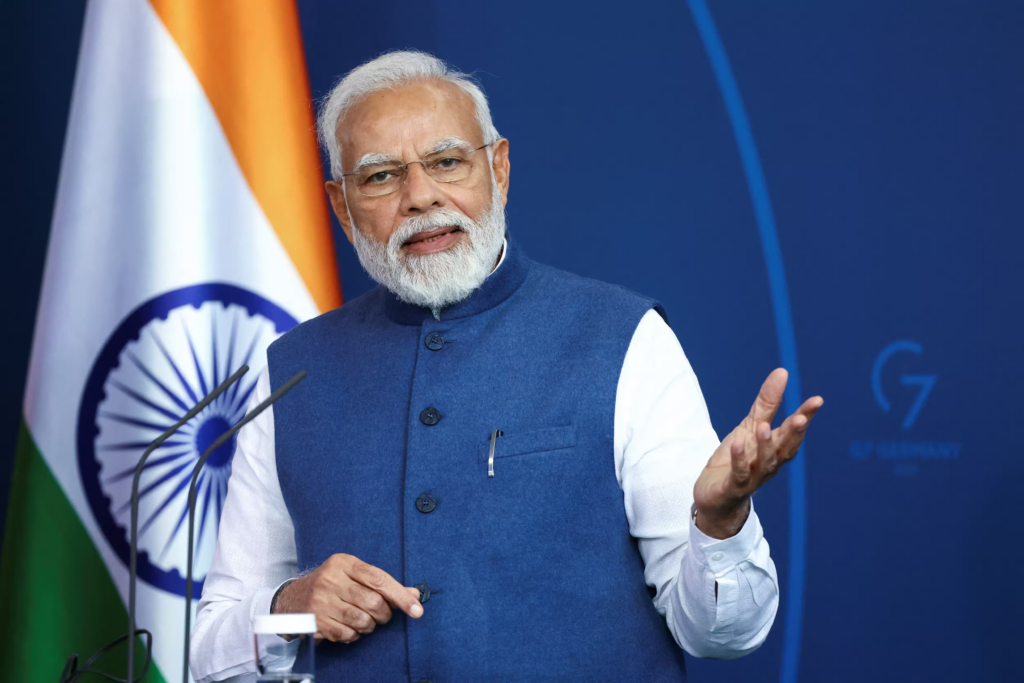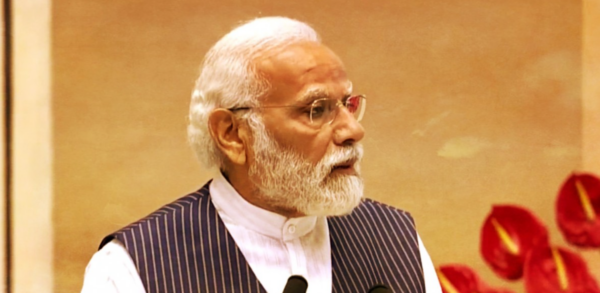Prime Minister Narendra Modi addressed Vigyan Bhavan on “Civil Service Day” last week. Modi preached arrogantly to the nation’s top bureaucrats. The prime ministerial pulpit allows that.
But Modi addressed a wider audience. The message is dangerous and reflects an authoritarian persona hopelessly enamored with infallibility.
A prime minister can shout his own praises, but he cannot incite the bureaucracy against the political class. The prime minister did that at Vigyan Bhavan.

His main point was that all political parties—except his own, the Bharatiya Janata Party—are self-serving instruments of self-serving leaders and cannot be trusted to protect and promote public welfare, public interest, and national well-being. In a democracy, political parties cannot be eliminated, but the bureaucracy had the “duty” to judge all government initiatives.
If Modi’s anti-politics narrative takes hold in our national consciousness, we’ll just replace one strong leader with another when the time comes.
More importantly, the prime minister advised senior bureaucrats to watch out for any changes made by a newly elected state administration at the demand of its business allies.
Despite his Orwellian double-speak, the prime minister seemed to be creating an ethical narrative to justify his government’s widespread and demonstrative use of the Enforcement Directorate, the Central Bureau of Investigation, and other coercive instruments against the BJP’s political opponents. Typical political vendetta legitimization.
The newly emboldened technocratic elite—impatient with democratic restrictions and ideologically anti-people—must love the prime minister’s tirade against political parties. This new elite supports Modi’s self-interest. The new governing class revels in its partisan notions of public good, just as he thinks his actions are motivated by national interest.
Every politician smears opponents. Modi appears to have crossed another rekha. He said in Hindi, “Ye aap logon ko dekhna hi hoga, doston (You will have to look into this, friends).” The bureaucracy was invited to join a conspiratorial jugalbandi against non-BJP parties and governments. Our politicians have sunk much lower.

Of course, the prime minister has diligently used – on a massive scale – the resources and instruments of his office to build himself up as the sole national saviour, excluding his party, cabinet colleagues, the Rashtriya Swayamsevak Sangh, the Vishwa Hindu Parishad, and crony capitalists. He rises tall on his own pedestal.
His new doctrine outlaws disagreement. Civil society and democratic dissent are forgotten.
His huge media machine has corroded all other political leaders and parties by labeling them polluted and corrupt. A new dogma invalidates dissent to his regime. Civil society and democratic dissent are already forgotten. Order, stability, and prosperity face the Great Demagogue.
This is not the first time people, external and internal forces and circumstances have destroyed popular trust in the political elite and its ability to guide the Indian State. In 1991, we jointly trusted the market’s curative power.
The political class had lost its self-confidence and voluntarily handed dominate territory and moral aura to the “animal spirits” of our business community and civil society, who ritually shouted “good governance.” Chief ministers preferred CEO titles.
This misunderstanding meant the political elite never regained its old elan or popular trust. Judiciary, other institutions, and civil society invaded political parties. New forces, persons, ideological pretensions, and interests strove to impose themselves.
After the “terror” age began, Indian society sought a “strong” government to protect us from external and internal threats. This need for a “strong” and “decisive” ruling arrangement obviously undermined democratic methods of discussion, bargaining, adjustment, and consensus-building among our society’s many fault lines.

Finally, in 2014, the Narendra Modi Project was presented to a susceptible audience as the solution to our polity’s anxieties and disenchantments. He earned clear mandates in 2014 and 2019 to restore democratic energy and social harmony.
Nearly ten years later, the Modi experiment is inefficient like any dictatorial regime. However, the prime minister and his drumbeaters are deliberately degrading all pre-2014 regimes’ democratic mandates and constitutional sanctions.
The prime minister and his hit squads should then delegitimize all constitutional institutions—judiciary, parliament, political parties—as dens of anti-national emotions. Unsurprisingly, Uttar Pradesh police lawlessness is being pushed as a necessary shortcut.
Modi is the high priest of this anti-politics religion. More mayhem follows. The much-maligned Nehruvian years gave India a democratic culture that helped resolve succession crises, but the current emphasis on one man is draining the republican vigor of the country. If Modi’s anti-politics narrative takes hold in our national consciousness, we’ll just replace one strong leader with another when the time comes.

